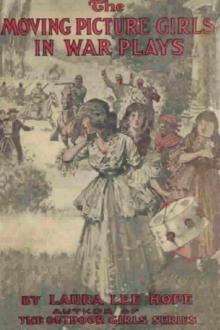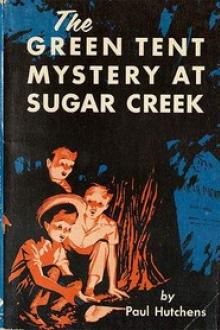Genre Fairy Tale. Page - 1

iginal Dutch settlers. Many ceremonies and customs, relics of aruder age, and now nearly forgotten, were still practised. TheRaymonds, although pious, and more intelligent than most of theirneighbours, kept up many of the usages of Fatherland on the Christmasoccasion, perhaps more as wafting them back in remembrance of earlyenjoyment in the home circle, than from any present love of thefestivity common at this period.
The joyful season drew nigh merrily, and in the watchmaker's family,as in all others--for the very poorest look forward hopingly toit--there was nothing but bright anticipations, which were for thepresent realized. The Christmas cake was prepared in the most approvedold fashion; the dark-hued pine was duly ornamented, and occupied aconspicuous place in the family room, and little William was made mosthappy in the receipt of many gifts, although toy paints and pencilswere not among the number.
But what says the Scripture? "Boast not thyself of to-morrow, for thouknowest not wh

e race has, in general, attainedthrough centuries of experience and moralising. The story becomes aninescapable part of the outfit of received ideas on manners and moralswhich is a necessary possession of the heir of civilisation.
Children do not object to these stories in the least, if the stories aregood ones. They accept them with the relish which nature seems ever tohave for all truly nourishing material. And the little tales are one ofthe media through which we elders may transmit some very slight share ofthe benefit received by us, in turn, from actual or transmittedexperience.
The second kind has no preconceived moral to offer, makes no attempt toaffect judgment or to pass on a standard. It simply presents a pictureof life, usually in fable or poetic image, and says to the hearer,"These things are." The hearer, then, consciously or otherwise, passesjudgment on the facts. His mind says, "These things are good"; or, "Thiswas good, and that, bad"; or, "This thing is desirable," or thec

d as though thegolden floor of heaven had come to rest upon earth. The path, withits sentinel trees, led straight as a rod to a distant house, longand low, surrounded by a vine-covered veranda. There were strange,sweet smells in the air, which felt soft and warm. The sky wasbrilliantly blue, and on the fence across the road a gorgeous parrotsat preening its feathers in the sunshine.
Mollie looked about her with curious eyes, wondering where she was.Not in England, of that she was sure--there was a different feel inthe air, colours were brighter, scents were stronger, and thatradiant parrot would never perch itself so tranquilly upon anEnglish fence.
Then she saw, coming down the path, a girl of about her own age,dressed in a brown-holland overall trimmed with red braid, high tothe throat, and belted round the waist. She wore no hat, and herhair fell over her shoulders in plump brown curls. By her side paceda large dog, a rough-haired black-and-white collie with sagaciousbrown eyes. He lea

referred manlystrength and vivacity even though accompanied by a shade of bluntness.But Sibyl always received Graham Marr with one of her bright smiles,and she would listen to his poetry hour after hour; for Graham wroteverses, and liked nothing better than reclining in an easy chair andreading them aloud.
"What Sibyl can see in Gra-a-m'ma, I cannot imagine," Bessie wouldsometimes say; "he is a lazy white-headed egotist; a good judge oflace and ribbons, but mortally afraid of a dog, and as to powder, thevery sight of a gun makes him faint."
But Aunt Faith had heard of the fortune which would come to GrahamMarr at the death of an uncle, and she could not but fear that Sibylhad heard of it also. The grandfather, displeased with his sons, hadleft a mill tying up his estate for the grandchildren, who were not toreceive it until all of the first generation were dead. Only one sonnow remained, an infirm old man of seventy, and at his death thehoarded treasure would be divided among the heirs, tw

show it with great satisfaction to his mother. She was much delighted athis skill and said:
"You are surely going to be a wood-carver, and a very good one."
From that time on Toni looked at every little piece of wood which came inhis way, to see if it would be good for carving, and if so he wouldquickly put it away, so that he often brought home all his pockets full ofthese pieces, which he then collected like treasures into a pile and spentevery free moment carving them.
Thus the years passed by. Although Elsbeth always had many cares, sheexperienced only joy in her Toni. He still clung to her with the samelove, helped her in every way as well as he could and spent his lifebeside her, entirely at his quiet occupation, in which he graduallyacquired a quite gratifying skill. Toni was never so content as when hewas sitting in the little stone hut with his carving and his mother camein and out happily employed, always saying a kindly word to him andfinally sat down beside him at her spinning

to Central Park, where the scene was to be filmed, or photographed over again--a "retake," as it is called, the bane alike of camera men and directors.
And while the girls--the moving picture girls--are on their way to do over a bit of work, I shall take the opportunity of telling my new readers something about Ruth and Alice DeVere.
I have called them just what they are: "The Moving Picture Girls," and that is the title of the first volume of this series, which depicts them and their adventures.
Their mother had died some years previously, leaving them to the care of their father, Hosmer DeVere, at one time a talented actor in the legitimate drama. But a throat affection forced him to give up his acting and, at the opening scene in the first volume, we find him and his daughters in rather straitened circumstances, living in a second-rate apartment house in New York.
Across the hall dwelt Russ Dalwood, with his mother. Russ was a "camera man." That is, he took moving pictures in t



